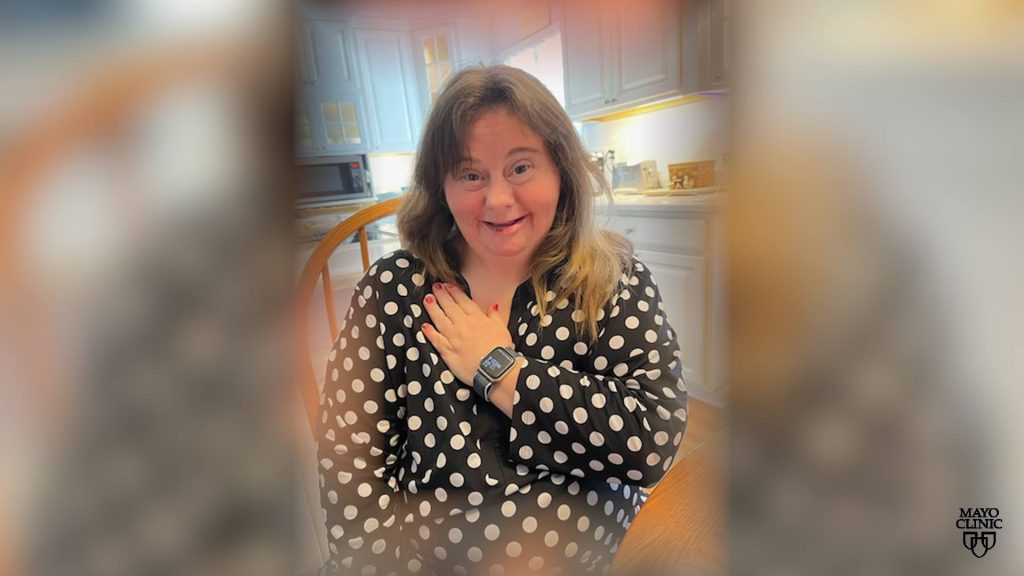-
Cardiovascular
Hope beyond heart failure: Innovative treatment allows woman to change the course of her heart failure

When they thought they were out of options, Nancy O'Brien brought her adult daughter, Jessica, to Mayo Clinic to look into palliative or comfort care after Jessica went into heart failure. However, Mayo Clinic doctors were able to find an innovative solution that reset Jessica's clinical course and helped her get her life back.
Watch: Hope beyond heart failure
Journalists: Broadcast-quality video (2:55) is in the downloads at the end of this post. Please "Courtesy: Mayo Clinic News Network." Read the script.
Jessica has a way of making everyone she meets just feel a little better. But in November 2022, it was Jessica who needed help feeling better. The usually active, gold medal-winning Special Olympics athlete started experiencing symptoms of heart failure.
"We knew something was wrong, but we didn't know what," says Nancy.
Jessica was hospitalized with rapid onset of heart failure in upstate New York, where she and Nancy live. Like many people with Down syndrome, Jessica was born with a congenital heart defect and received treatment at Mayo Clinic when she was 7 years old. But now, as a 42-year-old, it was unclear why she had developed sudden heart failure. So the O'Briens once again turned to Mayo Clinic.
"If any place knew how to handle that type of long-term care and the deterioration, we knew they would do it the right way," says Nancy.
Doctors at Mayo Clinic were able to identify a hole that had developed between Jessica's aorta and the right side of her heart.
"They had been told, really, there was nothing that could be done," explains Dr. Luke Burchill.
Dr. Burchill, an adult congenital heart disease specialist, says the uncertainty of what Jessica's future would hold may have been as big of a burden as her symptoms themselves.
"I think they really arrived with the understanding that there wasn't really an option. And perhaps we were needing to shift into a different phase of care — looking at palliative care," he says.
The hole in Jessica's heart could be corrected with open-heart surgery, but that is high risk. A multidisciplinary care team brought various experts to the table to develop a plan for Jessica that didn't involve open-heart surgery.
"Mechanical problems need mechanical solutions. In this case, it was finding a device that could be placed across the hole in her heart and plugging the hole. And, therefore, changing the clinical course of her heart failure," says Dr. Burchill.
To the O'Briens, hearing that was like "a gift from heaven."
"When we discussed that there might be another option, I think that they were in disbelief. You know, they had really done 180 degrees from being told there's nothing we can do. It's just a case of keeping her comfortable versus, actually, we have a solution. And that solution might reset the clinical course," says Dr. Burchill.
Within a week of arriving, Jessica underwent the procedure to plug the hole in her heart, and after a few days of recovery, she was able to return home.
"He helped me get my strength back," says Jessica.
Dr. Burchill is leading the development of new heart failure care pathways for adults, like Jessica, with congenital heart disease.
"Jessica is exactly the kind of patient that this new care pathway is designed to help. So it has really given me a lot of energy to keep going with building this pathway," says Dr. Burchill.







